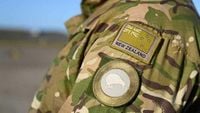For the first time in New Zealand’s history, a soldier has admitted to attempted espionage in a military court, drawing national attention to issues of security, extremism, and the evolving threats facing the country’s armed forces. The case, which unfolded over several years and culminated in a guilty plea formally accepted on August 18, 2025, marks a watershed moment for New Zealand’s military justice system.
The soldier’s name remains undisclosed by authorities, as does the identity of the foreign power to which he sought to pass sensitive military information. According to documents cited by ABC News and Radio New Zealand (RNZ), the soldier believed in late 2019 that he was communicating with a foreign agent. In reality, he was corresponding with an undercover New Zealand police officer, part of an operation focused on investigating right-wing extremist groups in the wake of the Christchurch mosque attacks.
The attempted espionage was not a sudden act. Over the course of several months, the soldier tried to share a trove of sensitive military details, including base telephone directories, maps, assessments of security weaknesses, his own identity card, and log-in details for a restricted military network. Military court documents revealed that he even attempted to provide information on how to access the New Zealand Army Headquarters, camp vulnerabilities, and weapons. The formal charge sheet stated that his actions were "likely to prejudice the security or defence of New Zealand."
But who was the man behind this historic case? Based at Linton Military Camp near Palmerston North, the soldier was already known to law enforcement. He had come under scrutiny following the March 2019 terrorist attack on two Christchurch mosques, where an Australian white supremacist killed 51 Muslim worshippers. The massacre sent shockwaves through New Zealand and prompted authorities to intensify their monitoring of extremist groups and individuals with suspected ties to them.
As part of their investigation, officers spoke to the soldier twice about his involvement in nationalist groups, according to RNZ. He was associated with the far-right Dominion Movement and Action Zealandia, though he later claimed that these were "no more than groups of friends with similar points of view to my own." In a statement read to the court by his lawyer Steve Winter, the soldier denied supporting the Christchurch shooter’s ideology and insisted that his association with these groups did not amount to supporting "untoward" or "terrorist" activities.
However, when investigators searched his hard drive, they found a copy of the livestreamed video of the Christchurch massacre and the shooter’s manifesto—both of which are classified as objectionable publications in New Zealand. Possession of either without official permission is a criminal offense, and several individuals have previously been convicted for holding or sharing these banned materials. The soldier admitted to this charge as well, joining their ranks.
The initial legal case against the soldier was sweeping. In 2020, he was arrested and faced 17 separate charges, including multiple counts of espionage, possession of objectionable material, and computer misuse. But in March 2025, these were withdrawn and replaced by three new charges: attempted espionage, possession of an objectionable publication, and dishonestly accessing a military computer system. Each of these carries a maximum prison term of either seven or ten years, with the charge of espionage itself potentially resulting in up to 14 years behind bars, according to ABC News.
The soldier pleaded guilty to all three charges in March, and these pleas were formally accepted by a military court martial on August 18, 2025. According to RNZ, a military panel is now tasked with determining his sentence, which is expected within days of the court’s decision. The New Zealand Defence Force has declined to comment until the proceedings are fully concluded.
This case is unprecedented for New Zealand’s military courts. The last time a similar case reached the country’s civilian courts was in 1975, when a public servant was acquitted of passing information to Russian agents. Never before has a member of the armed forces been convicted of espionage—or even attempted espionage—by a military tribunal.
Legal experts and security analysts in New Zealand have been quick to highlight the significance of the case. It exposes not just the risks posed by insider threats, but also the complex interplay between domestic extremism and national security. The soldier’s actions, though ultimately intercepted by law enforcement, could have put sensitive military operations and personnel at risk had they succeeded. The fact that he was communicating with an undercover officer rather than a genuine foreign agent may have spared New Zealand from a potentially damaging security breach.
At the same time, the case illustrates the ongoing challenge of monitoring and responding to extremist ideologies within the military. The Christchurch attack was a wake-up call for New Zealand, and authorities have since ramped up efforts to identify individuals with links to extremist groups. The soldier’s involvement with the Dominion Movement and Action Zealandia—both of which have faced scrutiny for far-right views—underscores the need for vigilance, even as he and his lawyer argued that these associations did not equate to support for terrorism.
The soldier’s defense, as stated by Steve Winter, sought to downplay his ideological alignment. "My client denied supporting the Christchurch shooter’s ideology," Winter said, emphasizing that the groups in question were merely circles of friends with shared opinions. Yet, the presence of the banned video and manifesto on his hard drive, and his willingness to share military secrets, painted a more troubling picture for prosecutors and the public alike.
For now, the country waits for the military panel’s sentencing decision. The outcome will likely reverberate beyond the individual case, shaping how New Zealand’s military, law enforcement, and policymakers approach the twin threats of espionage and domestic extremism in the years ahead.
As the nation reflects on this landmark conviction, the story serves as a stark reminder: even in places known for their tranquility and openness, the dangers of insider threats and ideological radicalization can lurk closer to home than many might expect.

